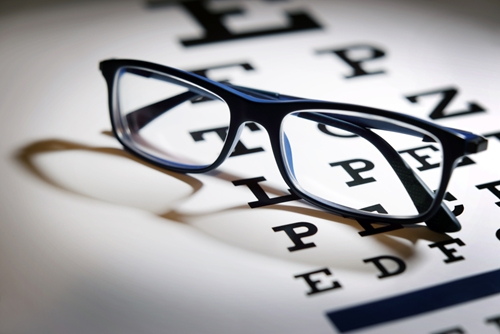When most people think of Alzheimer’s, memory loss comes to mind. Seniors with the disease may have trouble recalling what they did yesterday or even remembering their name. However, this isn’t the only health problem associated with the condition. Many individuals who have Alzheimer’s also experience vision troubles.

How Alzheimer’s affects sight
The Alzheimer’s Association noted that people with the condition often have several key problems with their sight:
- Color perception naturally lessens with age, yet those with dementia-related conditions like Alzheimer’s tend to have particular difficulty with discerning hues that are blue and violet. Color contrast is also tricky, so people with the condition might need a variety of shades in each room to see the difference between one object and the next. For example, a bedspread that is the same color as the floor could be confusing and even cause the senior to bump into the bed because he or she can’t tell where the bedding stops and the floor begins.
- Similarly, seniors tend to experience changes in their depth perception. People who have Alzheimer’s may have this occur to a more serious degree, with darker objects appearing to be flat instead of three-dimensional.
- Motion blindness may also affect older individuals who have Alzheimer’s. They can’t sense movement, so they see things as a series of still photographs instead of a moving picture.
Along with these difficulties, normal aging may cause floaters, or small interruptions in the visual field, difficulty adapting to changing light sources and overall blurring. It’s important that seniors visit an eye doctor regularly to ensure proper eye health and keep a lookout for any potentially treatable issues.
Perception and vision
How a person perceives something can be different from what he or she is actually seeing. The Alzheimer’s Society noted that dementia can alter a person’s perception, causing them to “see” things that are not really there. Those with the condition may see a distorted reality, like noticing images in patterns that are not really there. They may also experience vision-related perception problems, like skewed depth perception that changes 3D images into flat ones. Memory is also a part of perception. A senior with Alzheimer’s may see a family member and misidentify him or her as a father or sister. Most of these instances are considered visuoperceptual mistakes, or errors that may make others think the senior is hallucinating. This is different from dementia hallucinations, which may also play a factor in an Alzheimer’s patient’s life.
Changing your diet may improve your sight
The old adage, “An apple a day keeps the doctor away,” may come into play when it comes to helping seniors improve and maintain their vision. Some foods offer vitamins and nutrients that promote improved eyesight. Here are a few to encourage your older loved one to try:
- Cold water fishes like salmon and tuna, walnuts and flaxseeds are all full of omega-3 fatty acids, which have been found to alleviate dry eyes and reduce the likelihood of cataracts and macular degeneration. Plus, these foods are good for the heart and can improve immune functioning.
- Fruits and vegetables offer important vitamins A, C and E which are also helpful for slowing the progress of macular degeneration. These nutrients are dietary antioxidant vitamins and can be found in carrots, red peppers, spinach, grapefruit, sprouts, oranges, broccoli, apricots, cantaloupe, Brussels sprouts, kiwi, strawberries and more.
- The American Optometric Association shared that Zinc is important to sight because it is found in highly-concentrated amounts in both the retina and the vascular tissue layer underneath. Low levels of zinc can lead to impaired vision and cause a person to have a higher risk of developing macular degeneration.
If you found an error, highlight it and press Shift + Enter or click here to inform us.



